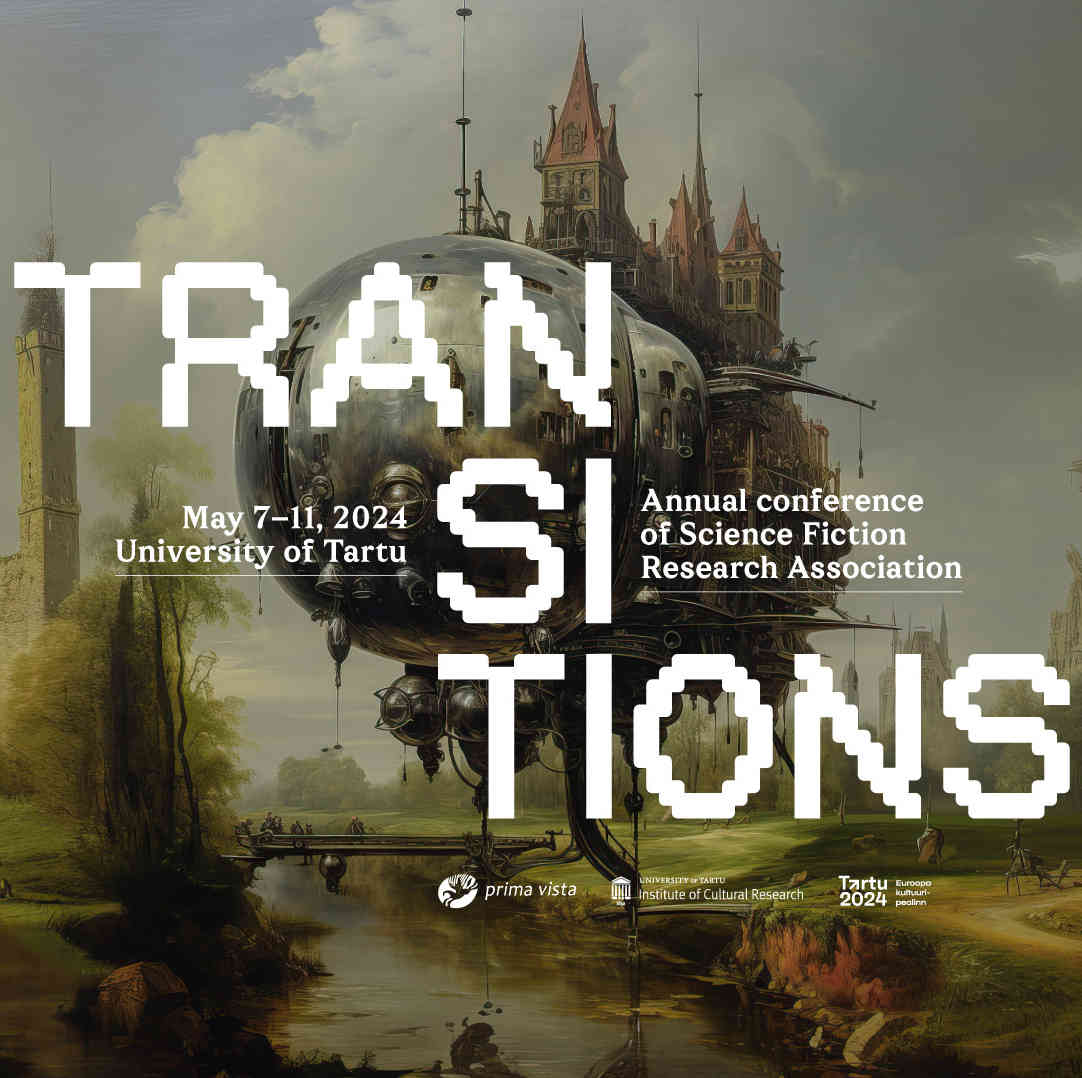“When things are changing too quickly, you don’t have any place to stand from which to imagine a very elaborate future.” – William Gibson
“Science Fiction is the literature of change,” Veronica Hollinger memorably noted, “but change is exactly what now defines the present. It no longer guarantees the future as the site of meaningful difference.” Indeed, Heraclitus’ famous statement that change is the only constant in life can nowadays be felt on a myriad of levels and scales, and with a special kind of artificially enhanced intensity. Indeed, it looks like what we’ve come to expect from the future is no longer a linear progression towards – or a gradual fulfillment of – some ideals, but simply more and more unprecedented change. Accelerated technological development, together with large geopolitical conflicts and multiple crises on a global scale have generated a permanent atmosphere of instability and unpredictability, resulting in a strong sense of collective cognitive vertigo. In parallel, there’s a strong yearning for utopian change, equally unsettling in its apparent unimaginability and unattainability, and evidence of a deeper standstill of capitalist realism lurking underneath the surface acceleration. How to grapple with and make sense of all this change? How to reduce the vertigo to be able to enact real change? One possible way, suggested by SF as a form, is to take Heraclitus seriously and focus on the moments and processes of change itself: that is, on transitions.
SF has long been a powerful medium for representing, envisioning, exploring, and critically reflecting upon transitions of all kinds: from mind-bending technological leaps to radical societal upheavals, from personal transformations to global paradigm shifts. Some transitions are visible and explicit, others implicit and recognized in retrospect. Some are planned or desired, others accidental or enforced. And multiple transitions can be related to each other in very complex ways. The genre has developed its own distinct poetic, representational and metaphorical capabilities to make our real-life transitions visible, to reflect upon and make sense of them. But transitions can also happen to science fiction as it traverses history, interacts with other forms, and shifts its position in the contemporary genre system: from one ideological or discursive formation to another, from national to global arena, from genre to mainstream, and so on.
Thus, “Transitions” seeked to discuss all kinds of transitions as the thematic, narrative, formal, historical, philosophical driving force behind SF: both how SF envisions transitions, and how the representation of transitions critically and metaphorically reflects upon our own. We invited papers on all forms and genres of science fiction in relation to transitions, including but not limited to literature, music, film, games, design, and art. We strived for a diversity of voices and perspectives from any and all disciplines and career stages. While papers on any subject in SF were welcome, we especially encouraged topics that resonated with the overall conference theme, including but not limited to SF and:
- Technological Evolution: how does SF frame the transitions brought about by technological innovations? What impact do these transitions have on society, ethics, and human identity?
- Cultural Shifts: how does SF reflect upon and influences cultural transitions, from changing norms and values to shifts in representation, diversity, and inclusion (of e.g., BIPOCs/BAMEs, LGBTQIA2S+ peoples).
- Political and Social Revolutions: the representation of revolutions, political transitions, and social movements (especially, but not only migrants and diasporic communities, working-class and other groups seeking economic justice) in science fiction narratives.
- Temporal and Spatial Transitions: time travel, alternate histories, parallel universes, and spatial shifts in science fiction.
- Bodies and Identities: transitions in bodily forms, genders, identities, and abilities, including cyborgs, posthumans and non-human entities, uncanny bodies.
- Planetary and Environmental Changes: SF’s engagement with ecological transitions, climate change, terraforming, and the portrayal of life on evolving worlds.
- Futuristic Transitions: utopian and dystopian futures, (post)apocalyptic transitions, alien contact, and integration.
- Global Market Transitions: from a niche genre to the globally dominant mass cultural genre, including the expansion and demographic shifts of its writers, readers, producers, and markets.
- Poetics of Transition: narrative strategies to represent transitions in SF, the poetics of transitional moments.
- Narrative and Genre Evolution: how do SF’s genres, styles, and storytelling techniques transition over time, and how these changes reflect societal and cultural dynamics.
- Transitions between Media and Platforms: the shifts in science fiction across different media, such as literature, film, television, comics, video games, and emerging digital platforms.
- Changes in SF studies and teaching.
Confirmed keynote speakers were Bogi Takács Perelmutter (The University of Kansas) and Meelis Friedenthal (University of Tartu); special guests were Olga Moskvina and George Ziets and Cory Doctorow.
See homepage of the conference for program, extensive photo gallery and more information.
